The Worcester Sucks guide to the municipal election
We either slide horribly to the right or we make the place just a little better
This was a slog to get through for some reason. I think I’ve got some unprocessed trauma from the last election to be honest. Still dragging on my psyche as we head into this one. I want you to be excited, there’s reason to be excited. But me? Hard no. Not making that mistake again. My body isn’t letting me. A week and a half I’ve spent on this guide, the majority of the time staring at the page and getting stressed and finding something, anything else I can do.
I told Chris (Outdoor Cats co-host if you’re new here) I was having a tough time, that it was gunna hold the podcast up as I continue to drag ass, and he goes “Sometimes you gotta shit yourself a few times on the way to the finish line. Ask any marathoner.”
And that I did, folks. That I literally di—Just kidding. I think it’s good and it better be. At least 40 hours of work went into it. Wish I’d kept a timer on the doc. (Note to self: figure out a non-annoying way to do that.) All’s to say consider supporting this newsletter so I can continue making this a full time job, putting way too much work into these posts even when I’m a little baby and don’t feel like it, and also reinvest money into the work of other stellar and rising local journalists! There’s an exciting addition coming soon!
This time next week we’ll know whether city hall is set to take a horrible slide to the right or inch closer to the democratic, representative institution we desperately need it to be. Let’s get to it.
The guide is divided into six sections, starting with the most necessary information, getting progressively further afield. The last section is titled “A Short Ethnography of Crank” if that gives you any idea. It’s long, at more than 8,000 words, but the necessary info is up top so only read to the end if you’re having a good time reading. The stuff I had fun writing is down there. None of it all that necessary.
1. The Basics
You can vote tomorrow. Early voting runs at the main branch of the library from 9 a.m. to 5 p.m. all this week. Thursday night it runs until 7 p.m.
Next Tuesday is the day though. Polls run from 7 a.m. to 8 p.m. Most polling locations you’ll be in and out in five minutes tops. That’s because no one votes in these elections, which is the number one problem we need to fix in order to make any other sort of progress. The six-vote crank majority on the city council blocking all manner of common sense, modern city governance practices can either be smashed or reinforced. It’s up to us—me, you, everyone who pays attention—to find fellow residents who don’t, and get them invested just enough to go cast a ballot. Ideally more than that but in the short term just caring enough to show up next Tuesday is good enough.
Share this guide with them! Good way to start the conversation. Look at what this frickin weirdo put together. It’ll make it easy.
For those who’ve never voted in a city election, here’s what you need to know:
Everyone citywide will vote for six at-large councilors, one mayor, two at-large school committee and on one very stupid, condescending ballot question. Here’s how it’s all laid out on the ballot.
Here are some more sample ballots, depending on where you live they’ll look a little different. Variations come in the two non-circled sections above. Those are the district city council and district school committee seats. Here’s how to find out which districts you’re in. (School Committee and City Council have different, overlapping districts, a frustrating mess recently made that way by Joe Petty et al, likely on purpose.) Each of the five council districts have competitive races. Only two of the six school committee districts do: District C (between Holy Cross and Lake Quinsig) and E (Webster Square area).
The recommendations I’m about to make are not mine alone. They are the product of a long, continuous conversation among a group of people in this city who care deeply about it and want it to be less awful. The easiest and most common tag for this group of people is the “progressive bloc” or “the progressives.” If you know nothing else, know that these picks will make the city more equitable, fair, responsive. They’re not on the same “team” and won’t agree on everything, but generally speaking, these are people invested in making Worcester less stuck in the 1980s. They are: Khrystian King, Etel Haxhiaj, Rob Bilotta, Keith Linhares, Cayden Davis, Jermoh Kamara, Jessica Pepple.
On the other side are what I call “the cranks.” But more reverent labels include “the old guard” or “longtime councilors” or “the majority.” They do things in a peculiar way. Soft processes built over decades have eroded the hard processes outlined in the city charter. The term for this is “above-board corruption.” Rents going up and up forever are a good thing for them and most of their constituents. Their primary goal is juicing property value. They do so by catering exclusively to a small, select class of property owners and developers. Those are: Joe Petty, Kate Toomey, Candy Mero-Carlson, Moe Bergman, Donna Colorio, Jose Rivera, Tony Economou, John Fresolo, Rob Pezzella, Ted Kostas, Satya Mitra.
There are a few somewhere in the middle: Luis Ojeda, who I’ve grown to appreciate, Edson Montero, Owura Sarkodieh and Gary Rosen AKA the Tom Bombadil of Worcester politics.
2. Quick Picks
Here are my votes:
Mayor: Khrystian King
There are four names on the ballot: King, Joe Petty, Owura Sarkodieh and Edson Montero. But only three are really running. Montero didn’t “withdraw” in the very confusing way at-large candidates must. But he isn’t running. Only two have a real chance: Petty, a crank, and King, a progressive. The choice is easy. King all the way. Petty will be hard to beat, but the recent split on a civilian review board gives King some gas.
In a recent video, Ellen Shemitz, chair of the Human Rights Commission until the city manager punished her for being too good at it, said it better than I could:
At large: King, Cayden Davis, Jermoh Kamara, Jessica Pepple, Owura Sarkodieh
Of the 12 people running for at large, the above names are the only good choices. Owura makes the list for his full-throated support of civilian review boards at the GBH mayoral debate a few weeks ago. The rest are good on housing, which is perhaps the only issue in this election besides the police department. They’re all in favor of rent control.
The rest are awful. As you can see, they didn’t even deign to respond to the rent control question. One of them wants to implement work camps for the unhoused and wants discipline for protestors. His name is Satya Mitra and he’s raised a ton of money. Hilarious overkill on the money front. Check the website Greg Opperman made for us to learn the extent of it: WorcesterElection.com
District 1: Keith Linhares
Linhares is running against Tony Economou, a real estate agent who used to hold the seat, and recently told an audience that the sexual abuse described in the Department of Justice report on the WPD was “just words on paper.”
District 2: Rob Bilotta
Candy Mero-Carlson, the incumbent, is at the center of the crony patronage network keeping the townie jobs cartel running. Rob Bilotta is a righteous accessibility activist willing to hold developers accountable. Easy.
District 3: Do not care. Both candidates are junk. Vote Blank or vote Fresolo because he’ll at least be funny.
District 4: Luis Ojeda
Ojeda has proven himself more aligned with progressives than with cranks over the past two years. His opponent, Ted Kostas, is a real Republican’s Republican. It would be a majorly regressive slide.
District 5: Etel Haxhiaj
Etel is the best city councilor we have. Her opponent, Jose Rivera, is often visibly upset that he’s being forced to run against her by Tim Murray, who must be in possession of some sort of kompromat. Recently, my former editor Walter Bird, who ran Rivera’s campaign last time, caused a stir when he accidentally hit reply all on an email advising Rivera that he shouldn’t debate Etel because he has no chance. At the very least, he said, ask for the questions in advance. Rivera, after posting about how he’d like the questions in advance, agreed to the debate a few days ago. It will take place Wednesday at 6.
Ballot Question On Colleges: No or blank.
This question operates on a false, misleading premise. Notice how it says “non-binding.” Notice how it starts with “support requiring” and not “require.”
That’s because the city cannot require the colleges to pay them.
Candy Mero-Carlson’s idea—a smarmy way to channel townie resentment toward the colleges. Candy and the rest of the cranks were told that the city couldn’t actually do what she’d proposed, and they voted this question onto the ballot anyway. She did this months ago because she was mad about the WPI hotel purchases. It’s extremely cynical, and it’s disrespectful to voters who support this then expect it to happen, only to find out it was never a possibility.
All we can do is ask nicely. We already did years ago, and already have what we’re capable of extracting from our higher ed institutions, protected as they are by federal laws that Candy Mero-Carlson can’t change. These are called PILOT agreements, and WPI’s is among the most generous.
For School Committee, I’ll defer and direct you to Aislinn’s WPS In Brief candidate guide. She does a great job. Here, I’ll just quickly give my picks in the contested races.
School Committee At-Large: Sue Mailman and Adwoa Sakyi-Lamptey
SC District C: Feanna Jattan Singh
SC District E: Nelly Medina
Real quick: Did you know Kathi Roy, Medina’s opponent, is the only candidate in the state to receive an endorsement from the Project 1776 PAC, one of the leading far right political action committees in the country, an organization that has raised and dispensed at least $2 million this year on local races with explicitly anti-trans priorities? Funding school committee candidates across the country they expect to attack trans rights? And they’ve given our own Kathi Roy at least $14,000 in funding?
Sheesh! That fuckin sucks. Here’s a real pop-up slide on their website you can find by clicking on the “Protect Girls Spaces” [sic] tab in “priorities.”
In donating to Kathi, The Project 1776 PAC is joined by the likes of City Councilor Moe Bergman’s wife Wendy, fellow School Committee member Maureen Binienda, City Councilor Donna Colorio, former and possibly future District 1 Councilor Tony Economou, and District 2 Councilor Candy Mero-Carlson via the local chapter of the AFL-CIO that her and her husband run like a personal cash machine. It’s wild—almost like our city is controlled by an insular little gang of deeply connected political operatives with overlapping and interlocking allegiances, the whole thing built on who owes who, who got who a job, who can get who a job in the future. In other words the “townie jobs cartel” I keep peppering into these posts. Almost like that. All of those people are in line politically with the Project 1776 PAC. They’re just plain old Republicans, waging a mini culture war.
If you know nothing at all besides you’d like Worcester to be less... generally awful... you’re already doing better than most of the expected municipal voters, a pool of about 20,000 or so voters in a city with over 100,000, who skew heavily to the conservative side of things and live in a select few “nice” neighborhoods. With 50 percent voter turnout in presidential elections, Worcester is a city that elects one of the most progressive congressmen in the country but with 20 percent turnout in municipal elections, the same city puts reactionary conservatives like Moe Bergman and Kate Toomey in key positions of power.
The lack of participation in local elections, in all but a few select neighborhoods, has produced over the decades a self-reinforcing system: the city council acts more like a homeowners association than what it’s designed to be: the body that dictates a vision, sets goals and measures the city manager on his (always his) ability to execute. Like any homeowners association, it has been thoroughly captured by police propaganda. Kate Toomey, the highest vote getter, is the most glaring example. When she talks about the cops, she says “we.” For the past decade she’s chaired the public safety subcommittee, the closest thing to a public oversight body the Worcester Police Department has. She has pointedly refused to do any oversight. She has on several occasions read text messages from police union officials into the official record, making no effort to distinguish the relayed message from her own remarks. If the council ever votes on the civilian review board proposal supposedly on the way after the WRRB report, she’s already on record as a no. She hasn’t even seen the proposal yet.
3. The Week Ahead
The last big election event is the mayoral debate hosted by the Worcester Regional Research Bureau tomorrow. It’s at Mechanics Hall, starts at 7 p.m., Manny Jae Media will be livestreaming, which is where I’ll be tuning in. (Thank you, Manny.)
See you there!
A past mayoral debate, hosted by GBH, showed that a civilian review board may be the defining fault line of the election. Here’s the clip of that exchange.
Joe, bewilderingly, is a tepid no. Khrystian is a strong yes, obviously.
Perhaps that’s why Chamber of Commerce CEO and shadow mayor Tim Murray resigned abruptly and publicly from the WRRB’s board of directors? In a statement he released apropos nothing late last week, he said:
To issue a report and recommendation three weeks before a competitive municipal election was, in my judgment, a mistake that does a disservice to the important discussion and debate this issue warrants.
Disservice to who, Tim? What an unforced error, making this a front page story just so Anthony Petrone understands you had nothing to do with it. (Thank you, Tim.)
Also tomorrow: last minute D5 debate!
To make the affair less patently terrible (can’t wait) Etel is using the opportunity to run a food drive, given SNAP is about to run dry. One of the many reasons why she is head and shoulders better than her opponent. From her campaign:
The District 5 debate is tomorrow at IBEW Hall, 242 Mill Street at 6 pm.
The debate will be streamed at Manny Jae Media.
Just a reminder that I am doing a food drive of nonperishable items to help WooFridges and El Buen Samaritano- organizations that are run and supported by District 5 residents and which help all our residents.
We will have boxes at the door. Just drop off something if you can afford to support our neighbors.
☑️ACCEPTED FOODS☑️
☑️Unopened frozen foods
☑️Breads and pastries
☑️Prepackaged frozen meals
☑️Pantry Staples (bread, sugar flour, canned goods etc)
☑️Packaged and labeled cheese, milk, yogurts, etc
☑️Packaged factory sealed deli meats
See you there! I’ll be bringing the shit out of some Market Basket brand corned beef hash (delicacy).
Also Wednesday (sheesh) there’s one last fundraiser for Kamara.
Cayden and Keith, my two beautiful sons. are doing some joint standouts. Good things to show up to if you want to get involved in the final push. This from a recent Davis campaign update:
Thursday, 10/30, 3:30-5:30: Lincoln St & Country Club Blvd (Aldi / bus stop)
Facebook Event Invite
Monday, 11/3, 3:30-5:30: Burncoat & Dennis Dr (Burncoat High)
Facebook Event Invite
Turnout Matters
Kudos to GBH and the Worcester Guardian for collaborating on a story about historical patterns of low turnout in Worcester elections.
Low turnout can also lead to disproportionate representation. In wealthier neighborhoods of Worcester, voter turnout can top 40%. In lower-income areas like Main South or Great Brook Valley, it usually sinks to 14% or 15%. That discrepancy translates to people with higher education levels and incomes having more of a say in who gets elected citywide. Some residents say the result is that Worcester officials overlook their needs.
It’s a follow-up of sorts, though neither would ever say so, to a series of stories we’ve run on the issue in recent months. When you really delve into the precinct level data, you see that low turnout is not a static number across the city, but one that’s highly coded by socioeconomic factors. City elections are decided by a few enclaves of comparatively white, wealthy and propertied neighborhoods. In other words, as Worcester Sucks teammate Gillian Ganesan put it...
...four precincts, all coincidentally touching the Holden line, far and away out-voted everyone else. That’s four precincts that control our city, out of sixty total. They stay tucked away behind Newton Hill and cast their wicked ballots over the rest of Worcester. What the hell!
Did you know Newton Hill was first preserved as a fire buffer between downtown slums and the nice neighborhoods in the place where they still are? Like that was the stated reason? To stop the fires from spreading past the artificial line (Park Ave) between where eh, fires happen and the place where fires simply cannot happen here? The original purpose only slightly augmented in the intervening 200 or so years. Some things never change!
Here’s a map from a post of mine on the matter back in March: “The Uneven Geography of Political Backwater.” See if you can find Newton Hill on it, lol. (Hint: Southern end of the deep red.)
And an excerpt:
Among local reporters it’s an open secret that the only polling location worth going to on election day for “scene” is the one next to Worcester State, in the heart of the deep red area above. Go to any other and you’re wasting your time. No “scene” to be found.
It’s not a coincidence that the area with the election day “scene” is in command of the electorate and is also the whitest, richest, and the most heavily zoned against residential density. Almost all of that region is protected by single family zoning restrictions. The other regions of the city with the second deepest shade of red are also predominantly filled with single-family zoned neighborhoods.
You see what I’m getting at here?
It’s not an accident of history that city policy caters to the priorities of these residents almost exclusively. Think of the bitter fights over inclusionary zoning, the rental registry, the eviction moratorium, etc. etc.
Here’s an interesting data visualization a reader sent in a few months ago, responding to another piece on turnout I can’t remember right now.
You’ll notice there’s just one part of the city that stays the same color. It is the “nice” part of town. The West Side. That means that the difference to be found between national and local elections is found away from the west side. It is there for the candidate who figures out how to tap into it. A few hours to our south, we have a prime example of a candidate who was able to reconstruct his voter universe from the ground, in Zohran Mamdani. He did it by speaking plainly to widely felt issues: housing and transportation, in places where they’re not used to a mayoral candidate speaking. It’s a matter of summoning the will and tapping into the people power to rekindle the imaginations of people who’ve long felt so neglected they’ve disinvested from the process.
Will King be able to do it? We’ll see. Progressives are the only ones trying. We shall see.
Good time to move to some hypothetical outcomes. First, please support this work if you find it more valuable than other coverage you’ve read on the election!
4. Scenarios
So let’s look at some possibilities, with the help of the Freeform tool on a Mac and my complete lack of shame in sharing my poor graphic design work.
Here’s the current state of the 6-5 split.
Heading into the next term, it’s a 5-3 split, as far as incumbents seeking re-election, as three have dropped.
Now here’s the pool of all candidates, regardless of district or at-large, on the same affiliation map.
Seven progressives, four centrists, eleven cranks. Not the best!
Let’s start with the worst scenario.
This is the full crank coup de grâce and it’s mathematically possible. Real bad.
But also mathematically possible is what I think is the dream scenario. A 10-1 split between a coalition firmly in progressive hands... and the cranks are reduced to their ad-hoc mascot, Mr. Peepee Man himself, John Fresolo.
Neither of these scenarios are very likely. Vote counts don’t change much year over year. Knocking off Petty or Toomey would be especially difficult. So I’ve prepared two more likely scenarios, based on past performances. Let’s start with the bad one.
This is entirely possible. In fact it’s likely. The 6-5 dynamic turns into a 9-2 split where nothing good is possible and there’s no meaningful leverage to resist the bad. Which is why turning out even one more voter is so important. Because we could also have this!
That right there is a seven-vote majority over the cranks. In this scenario, we don’t have progressive control, per se, but the cranks have been diminished to a four-vote position, putting them in the minority position. Talk about great replacement theory!
The difference between “likely (bad)” and “likely (good)” will come down to about a 1,000 or so votes overall. Like I said, the margins are slim.
District 2 and District 5 were within about 200 votes last election with the same people now running for both. District 4 barely gets 200 voters overall. The at-large race will be a competition for fifth and sixth, probably. Unfortunately, Kate Toomey, Gary Rosen and Joe Petty are sure things. Khrystian’s also sure thing, luckily. But Moe Bergman and Donna Colorio aren’t! Donna is even more vulnerable than Moe. And Thu Nguyen’s reasonable decision to step away—from an institution that refused to take the abusive behavior of Candy Mero-Carlson seriously—leaves a sixth seat open. So it’s the district races and it’s fifth and sixth at large that will make or break the crank majority.
There’s a very real possibility we can get Cayden Davis and Jermoh Kamara on, while knocking off Donna Colorio and handing Satya Mitra the honor of experiencing the most expensive failed bid of all time. The difference between Davis/Kamara and Colorio/Mitra will likely be less than 2,000 votes. This is what I mean when every vote counts. In the past two elections, the difference between 6th and 7th has been less than 2,000. If we can turn out 8,000 voters for Davis and Kamara citywide, we have it locked. Turn out 7,000 and we probably do not.
The margins are so so so slim. Every vote truly counts. Can you convince someone to go vote who wouldn’t otherwise? That’s the question of the week.
5. Why Care?
In the post-nuclear collapse Massachusetts of Fall Out 4 the territory of the state is divided mostly between two factions with broad memberships: the minutemen, a ragtag group of regular people who survived by working together to keep their community safe and healthy, and the brotherhood of steel, a band of mecha-cops who impose a spartan austerity on populations as they implement a colonial-style extraction economy. They rule via displays of violence, threats of violence, violence proper. The two factions are loose stand-ins for two foundational models of governance: mutual aid and law and order. Anarchy versus authority. Socialism versus barbarism. These questions are becoming less academic at a worrisome rate.
Given we’re in what I’d call an “onset collapse” phase of things, generally, Minutemen vs Brotherhood is a decent framework for the city election next Tuesday. Take a moment to imagine a near-future situation in which cities are more or less unchanged, providing the services they’ve provided, but the “country” and “state” umbrellas are functionally useless. Imagine—I know it’s really hard—that Worcester would be among the first cities in the region to be pretty much just abandoned as the “nation” ceases to exist. Left to its own devices. Absent reliable federal and state funding streams, abandoned cities like Worcester take on the role of the state. Re-take it, really.
Were that to happen with the current balance of power preserved, we’d be living in a little police state—100 percent pure Brotherhood of Steel town. Without a doubt in my mind, we’d become a neo-feudal company town for one of the surveillance tech companies with territorial claims in the northeast quadrant. I for one do not want to see what life in Worcester’s like under the rule of a few Thomas Duffys in Isildur brand T-60s.
Local politics is very often a boring affair. The issues and dramas of the day-to-day mechanisms are dry, hard to understand, hard to care about. But the core premise of it is your—yes, you reading this, your—right to the city. It is a contest over who gets to really call a given place home. Who gets to decide what happens to whom where. What the streets and the sidewalks are for, who they’re for, who they’re not for. The pitched street confrontations making daily news cycles currently in Chicago, LA and New York are expressions of this contest over right to the city. Each moment is an exercise in that claim. This is our place, they tell the federal agents, not yours. Exactly as Etel and Ashley and everyone else at Eureka Street did. Exactly what the WPD explicitly tried to prevent. To see it in those terms gives local politics a real stake.
It’s becoming more important than ever to give a shit about your city, your neighborhood, your block, your neighbors. Our right to the city has been called into open question in new ways. The city election on November 4 could be a referendum on that. A putting down of our collective foot. Or it could signal we’re resigned to let ‘em have it. Some good motivation: Robert Evans’ “It Could Happen Here” podcast series, a speculative analysis of a balkanized America that becomes closer to real life every day.
What I hope to instill in you is that what happens on the local level is inseparably bound up with the national. All the chatter about “getting back to city business” is coming from a group of people currently in control, who see what direction the country is heading in and like it. It is a tacit endorsement, to say “never mind all that stuff.” I do not want people who feel like that to have any power at all over my city. Do you?
The Brotherhood of Steel is the front runner in the election—currently in power, has been for a long time. But they’ve been getting sloppy. And the minutemen are making a stronger case as the Brotherhood balks and falters, unaccustomed as they are to significant political challenge. We’re all waiting our turn to be the next city performatively invaded by the federal government. Food stamps are about to run out. It’s all falling apart.
A strong city government gives us a fighting chance to weather the collapse. The no longer hypothetical collapse but the ongoing current collapse, which will take on an exponential character if food assistance really dries up like they’re saying it will. We need a city government ready and willing to act in lieu of the federal government. That is responsive to the needs of its residents in real time. That centers the people in our city that need help most desperately. In short, we need a complete overhaul.
IF YOU ARE MAD ABOUT WHAT’S HAPPENING IN AMERICA THE MUNICIPALITY IS THE ONLY ARENA IN WHICH YOU CAN CONCEIVABLY DO ANYTHING AT ALL ABOUT IT. A little too long for a Jenny Holzer installation but imagine me screaming it in the style of MEN DON’T PROTECT YOU ANYMORE.
Maybe this is better…
YOUR RIGHT TO THE CITY IS THE ONE THEY WANT MOST
When I say “right to the city” I’m speaking to a long, rich academic tradition bound up in the term. It’s not really in the common vernacular but it’s the concept around which all my work in this newsletter spins. Before I even knew about it, that was the case.
As an introduction, I’d highly recommend David Harvey’s 2003 essay “The Right To The City,” which you can read/download for free here. It’s only 15 pages.
...the question of what kind of city we want cannot be divorced from the question of what kind of people we want to be, what kinds of social relations we seek, what relations to nature we cherish, what style of daily life we desire, what kinds of technologies we deem appropriate, what aesthetic values we hold. The right to the city is, therefore, far more than a right of individual access to the resources that the city embodies: it is a right to change ourselves by changing the city more after our heart’s desire. It is, moreover, a collective rather than an individual right since changing the city inevitably depends upon the exercise of a collective power over the processes of urbanization.
The freedom to make and remake ourselves and our cities is, I want to argue, one of the most precious yet most neglected of our human rights.
The city government we currently have acts as both a townie jobs cartel and real estate speculation engine. It is not equipped, prepared or perhaps even capable of becoming more than that. Its culture is insular, necrotic, and resentful of the outside world. It transparently treats the vast majority of the city as the “out group” that must be antagonized in service of the “in group.” Power does not flow the way we’re told it flows. Public pressure does not do what we’re told it does. Decisions do not happen in the way the charter proscribes.
Worst of all it’s an institution allergic to imagination. We’re in a moment of societal transformation that desperately calls for imaginative local governance. The political culture of this city is oriented away from imagination—toward punishing the imagination out of people or disabusing imaginative people of the value of their input.
To change the culture, we need to render those currently in power politically irrelevant. Argument is pointless in most situations but in this one it is truly futile. They do not listen, as a rule, unless you are among the “in group.” And if you’re not in it, you’ll never be in it. If you are, and you do something good, you’ll quickly be jettisoned. Which is exactly what Tim Murray et al are doing right now to Paul Matthews, executive director of the Worcester Regional Research Bureau, after they put out a report in favor of civilian review boards. More on that in an upcoming podcast episode. And a great breakdown of how it happened on This Week In Worcester’s most recent Sunday show.
6. A Short Ethnography of Crank
This election is a contest of two well-defined narratives. The central question: Is city hall supposed to be like uhhh this? Or can it be better? The people who think city hall is supposed to be like the way it is currently, minus the annoying people trying to change things, they don’t really think per se about what city hall should be. They are creatures of their environment, and any of them running for a council seat have had some success navigating that environment. It works for them, and they know how to work it. In classic boomer fashion, the rest is tough shit. What, you think you’re better than me?
A perfect distillation came at the city council meeting last Tuesday. As discussed in the last post, two reports on the agenda detail a worsening inability to pay back polar park loans without dipping into the general fund. Discussion on the council floor was prohibited by an unexplained “hold” courtesy George Russell, a man who previously called the auditor “Nostradamus” for his ability to predict the Polar Park deficit figure.
And when George Russell says “Nostradamus” in George Russell Voice, you gotta make a whole song about it, naturally.
But anyway. Russell obviously held it for Petty, whose most recent and probably final mailer leads with Polar Park. Lol.
But just because the council has to wait until after the election to talk about the most disastrous thing the council has done in recent memory, it doesn’t mean the public has to. Enter: Nicole Apostola, a public commenter of the highest caliber, and person with whom I have significant niche disagreements on local politics I will never be able to parse and would need the rest of my self-allotted word count to explain (already well over).
She proceeds to eviscerate the whole entity, upways, downways, sideways...
Months ago, Mr. McGourthy wrote a memo to this body saying, we still anticipate the DIF reserve to generate nearly $50 million through its completion by 2048. If this sounds familiar, it’s because he repeated this exact phrase in his memo to you tonight in item 1026A. Maybe if we keep saying it enough, it’ll magically come true. We have 23 years until 2048. Over the last three years, the DIF will estimated owe the city $2.1 million.
It’s unclear how we’re going to get from consistently operating in a deficit to developing enough buildings that continue appreciating in value to not only consistently pay the district’s part of the ballpark, something it’s never been able to do in the past, but also to have a positive balance of $50 million.
As you may recall, the original district wasn’t going to pay what we needed, so we expanded the boundaries of the original district. Now, the expanded district won’t make enough money, so we’ve had to expand the district to basically encompass the whole city. This body has a fiduciary responsibility to the people of Worcester. And so what you should be asking the city administration when this comes back up after hold is, one, why has no one been held responsible for the horrible contracts the city has been saddled with? Two, why has there never been a reckoning for the misconstruction of the doors at the park that prevents certain events from being held there? Three, why has the city not been able to take advantage of any of the revenue generating days we were supposed to have? And most importantly, number four, exactly which services are being cut so that we can subsidize multi-millionaires?
It’s crazy we live in a world where our Apostolas have no obvious path to a council seat should they want one, but our Russells can keep a seat on that council for as long as they’d like having never read a single city report. Then, when they retire, two nearly identical Russell Builds (Fresolo and Pezzella) vie for the seat. The campaign is the nastiest by far despite—or because?—the ideological Venn Diagram is a perfect circle. The spat between the two of them at a recent candidate forum is a great example of the “business of the city” that apparently wasn’t being done, according to the crank narrative, because someone asked them to say “genocide bad” one time.
A few minutes after Nicole, Keith Linhares, District 1 candidate extraordinaire, took the mic. He picks up where Apostola left off, on the glaring deficit left by Polar Park.
Public trust in our city’s leaders’ ability to provide transparency and oversight and to hold big developers accountable has eroded the past several years.
Right now there’s a responsible development pledge that’s going out to all of the candidates who are running for re-election.
I signed the pledge myself and I take the promises that I make very seriously. It includes a clawback to the TIE subsidy given to the Menkiti Group for breaking their agreement with the city. It asks elected officials to support unifying responsible development ordinances and for increased transparency on development projects through expanding reporting on the TIE/TIF and restoring building permit applications to the city website.
Members of the public who keep saying that they want to hear more oversight of big developers and they want these people held accountable should pay attention to who signs this pledge and who does not. By embracing the pledge we can begin to rebuild the public trust we lost with projects like Polar Park.
Linhares speaks eloquently, knows what he’s talking about, gives a shit. His opponent called the DOJ report “just words on paper” at a recent candidate forum and got a standing ovation pretty much. The race will be close and Economou remains the frontrunner despite the obvious fact of Linhares being more competent and better suited for the job. Economou is just a member of the jobs cartel. That’s all he needs to be. Nothing else matters in the crank calculus.
But Economou is boring. To really understand Crank, it’s better to look at another moment from the same meeting. A late-in-the-night and insignificant moment, but rich with opportunity for character observation. During the “orders” section of the agenda, which the councilors mostly treat as the chance to pepper the administration with “neat ideas” or “can you google this for me?” requests, Kate Toomey, a frequent doer of both neat-ideas and can-you-look-em-ups, rises to address the august body. She begins:
We’ve been very grateful to have a wonderful arts community here in our city.
Notice how, in this next sentence, the second sentence, she gets straight to the point of what I contend is the only reason she brought this up.
People may not know this about me, but I was an art teacher and I do watercolor and drawings and all sorts of things myself. And so I also like to support locally owned businesses.
Now it’s anecdote time. This is a big part of crank legislating: the chance encounter precipitating a Eureka! moment.
And when I was in one recently, purchasing some materials, I had a conversation with an employee who was saying that they were considering moving out of Worcester because they couldn’t find affordable studio space.
And I think that that’s something that we talk about living space, but it’s also for artists, they need studio space for creating their art to help grow our economy. And I think that that’s something that with the rising prices of real estate, it may have run away from us.
Every proposal must be grounded in some vague casual conversation with one resident, some vaguely stated time in the recent past. Old guard councilors use this device as a lazy substitution for the parts of a pitch where normal politicians would put data points.
And so I know that there are a lot of opportunities out there. I know that certainly there are grants, etc. But I think one of the places that came up to my attention was Toronto was doing capacity building opportunities for local non-profits to offer affordable workspaces as well. And I think that that’s something that we could take a look at.
Toomey ends this in the traditional fashion: asking the city manager to do it without offering to help. Toomey, the manager, everyone knows this proposal is not serious. That it is getting thrown right in the trash.
I looked into this for all of two seconds and, and learned Toronto started leasing city-owned spaces at a discount to artists. Nice idea! Toomey doesn’t mention it, despite that being the main thing that makes it noteworthy. Instead, she passes the buck to “local non-profits.”
Over the past term, Toomey has voted to make ADUs more restrictive, to prevent a local crafting group from handing out hats and mittens, and voted against keeping two former Becker buildings on Sever Street that could have been used for the sort of program they launched in Toronto. She voted instead to sell them off, ensuring we’d never get the chance. Then, Tuesday night, she says this...
I know that there’s certainly a number of our colleges have purchased properties that might be fit into that space as well. But having those creatives and having the creative economy and the support for that really helps our city grow and become attractive.
Completely unserious. Pet peeve: talking about artists as an engine of the growth machine, as if that’s the thing that makes them valuable.
And so as soon as we can address that and come up with a plan, that would be great. Thank you.
You’ll notice Toomey did not extend even a little bit that she would come up with the plan. Not her job as she sees it! She’s not there to lead.
Toomey is followed up by Jenny Pacillo, a councilor who does do her homework, does care, and was caught in what I’m sure was a miserable position, trying to stay on the good side of Joe Petty and progressives at the same time. Impossible. It’s no wonder she followed in Thu’s footsteps and decided to just get the fuck out of there. That’s Joe Petty for ya. Suck the caring straight out of ya. His specialty.
This is a really big issue. I have friends who are artists. I’ve been to some of their studios and the studios people can afford are not in great shape at all. And it really is too bad because the artist community in Worcester is amazing and you’d hate to see people leave the city.
Then, unlike Toomey, she requests concrete action, offering a real direction.
So the Fitchburg Arts Community has 68 mixed income artist preference apartments that are in three former historic municipal buildings up in Fitchburg. So the feasibility of doing something similar where artists could live and work and stay in the city. Thank you.
A great idea. City council powers well used: setting in motion an initiative with a concrete model and practical plan. The person who did that was bullied out of wanting to be a councilor after one term. The person who did nothing but talk about herself has been a councilor for a decade. She gets the most votes every year, she likes being a councilor so much she has convinced herself it makes her a police officer.
With three points of contrast, between Linhares, Apostola and Pacillo, we can zoom in on this one Toomey order as a crystal clear distillation of what the cranks believe they’re there for. There’s the narcissism: having to include that she’s an artist herself. There is the unseriousness of the suggestion. She proposed it as a flight of fancy and sent it to the city manager and expects it to go nowhere which is exactly where it will go. The lack of tying her idea to any cohesive plan. And then there’s the long record of proposals that she voted against in the arena of housing and density and community support. Zero self awareness on any front. And then bonus points she neglected or willfully disregarded the actual substance of the Toronto program she invoked, replacing a simple good idea—city leases out cheap space to artists—with meaningless word salad.
Like all the cranks, she does not have a vision for the city, only a set of grievances she arrived at by accident, in the process of reacting to one causer at a time. As a subject of study, Toomey is simply the easiest—the ideal model of a political culture that produces a specific kind of councilor. That culture being the opposite of a meritocracy. (Which there is, it turns out, a word for. I tried finding it in my Bluesky mentions. Please send again lol it needs to make it into one of these posts.) But Toomey’s status as the second highest vote-getter in every election, just behind the mayor, is a cold fact. And it’s my contention that she takes that mantle not despite but because of her uselessness. The many flaws I have illustrated in this one specific post and the dozens more to be found in the archive of this newsletter are, to certain select people, strengths. The real estate lobby and the police love a councilor they can rely on to do nothing and pretend otherwise by filling their time with the airing of grievances.
“Division” and “tensions” and “decorum” and “civility” are the euphemisms for most of these grievances. “National issues,” is another. I cannot stress enough that they barely know what they mean when they say these things. That all of it is code for “I find progressives annoying.”
Take, for instance, Jose Rivera’s recent candidate profile in The Telegram. He tells the reporter the people of D5 want more “civility in City Council meetings.”
“They want decorum and I feel I bring that to the table,” said Rivera, who works as an assistant chief court officer at Dudley District Court.
What does he mean by that word? When did his opponent show a lack of it?
He doesn’t say because no one asks. It’s all wink wink like that, this alien political lexicon, even or maybe especially with the local press. A few lines later, he says...
“Definitely different styles,” is how Rivera compared himself to Haxhiaj. “With me there will be no political ideologies, no political theatrics. My obligation will be to the residents of District 5.”
First of all: lol. Second, I want to zoom in on the phrase “no political ideologies.” That’s a lie. Everyone—especially someone seeking a political office—has a political ideology. It’s just that most people’s are incoherent. Etel happens to have a well-formed ideological worldview. But Rivera has one too, it’s just on loan from the Chamber of Commerce. He knows where the lines are, but not why the lines are where they are—does that make sense? You don’t have to personally understand your ideology is the thing I think a lot of people don’t get about ideology. I would argue that most people, especially in America, do not.
Etel understands her ideology, having consciously chosen, shaped, padded out and, worst of all, used it. The last part being the thing that makes her the most maddening and/or scary to your Riveras and Duffys.
That’s what they mean to say when they use this “I don’t have ideology” line.
With any luck, the limits of that secret code are already reached. It is peculiar that candidates for political office in this city run on having no politics. Not being “political.” Orwell would be like frickin atodaso.
Then just by chance I’m checking the Telegram website the other night and I see this one from Satya Mitra in the thick digital fog of a Gannett website. Stunning. Five ads, no text.
“Focused on Worcester, not politics,” says the political candidate in the political ad placed in front of readers interested in politics by nature of their clicking on a political story on a political news website. It’s such a crazy unforced error to lie like that. It’s a lie that readers inuit instantly, some in a positive way, picking up on the secret code the message is meant to convey. But most are just going think it’s sorta weird. They’ll be put off by it briefly, if they think about it at all, and they’ll move on with their lives.
This is just one example of the way this political culture uses coded language. There are dozens of terms like “political ideology” that boil down expressions of tribalistic loyalty to a loose cartel of influence and city jobs and real estate speculation. What they might unabashedly at times call “the city family,” as Toomey did recently. She’s so swaddled in the blanket of it she doesn’t even know when she says the quiet parts you shouldn’t say out loud.
The cranks have a very strong ideology that has held such a totalizing grip on Worcester they convince themselves they have no ideology at all. A byproduct is clueless indignance when confronted by a competing ideology, which is what the progressive movement is presenting.
When you look at all the split votes, you see a pattern: cranks vote as a block against anything that really confronts their ideology.
An incomplete list also totally coincidentally reads like a list of the city’s ills.
—Moratorium on encampment sweeps
—Hats and mittens for the homeless
—Accessory dwelling units by right, without an owner occupancy restriction
—Protected bike lanes
—Ending the genocide in gaza
—Apologizing for transphobia
—Public petitions
—Municipally owned grocery store
—Equity audits
—Changing the district system so school committee and council have the same districts
Split votes the cranks have introduced…
—Metal detectors in city hall
—Releasing the names of police sexual assault victims
—Preventing public input at council meetings
—Pausing bike lane construction indefinitely
—More jail time for juveniles
—Limit speaking time for councilors
Peep the spreadsheet I made of every split vote and find your favorite!
There is nothing we can do to change these people’s minds. The cranks just need to be rendered irrelevant.
So there is still time to volunteer for candidates and donate to their campaigns. But the most important thing you can do, however you do it, is figure out how to get just one more person in your life to get to the polls. Can you do that? Please?
No odds and ends for this one. We’re already well over time here. Podcast coming shortly, another really good interview set up for later this week, a new column coming in, WPS In Brief ready to post… good stuff. We’re really doing the damn thing here. Really not a whole lot that would be in an alt weekly we’re not already doing in thi newsletter. Just need trashy classifieds and a photographer or two! And enough money for a few more full timers. Please help out if you can spare some cash.
Ok, talk soon!


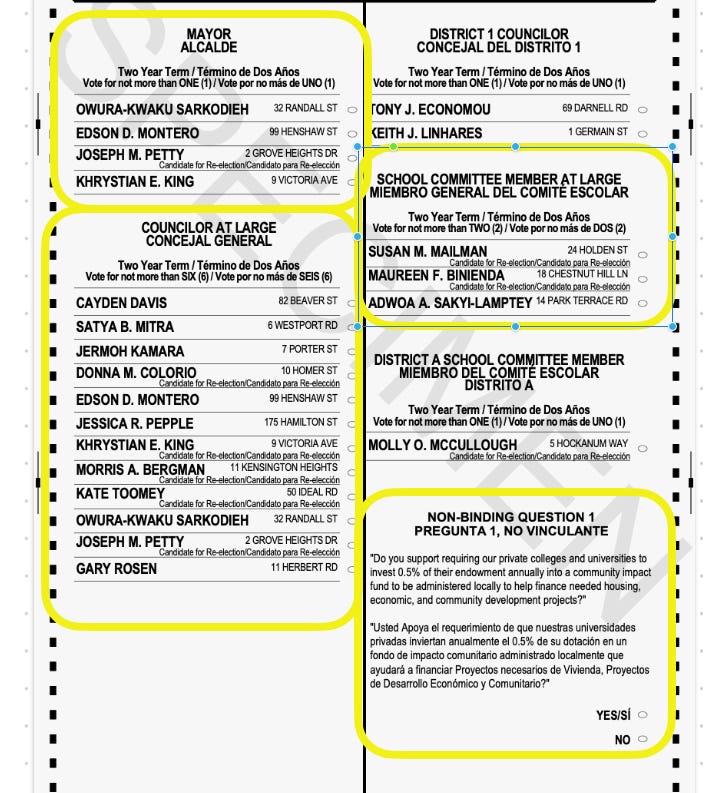
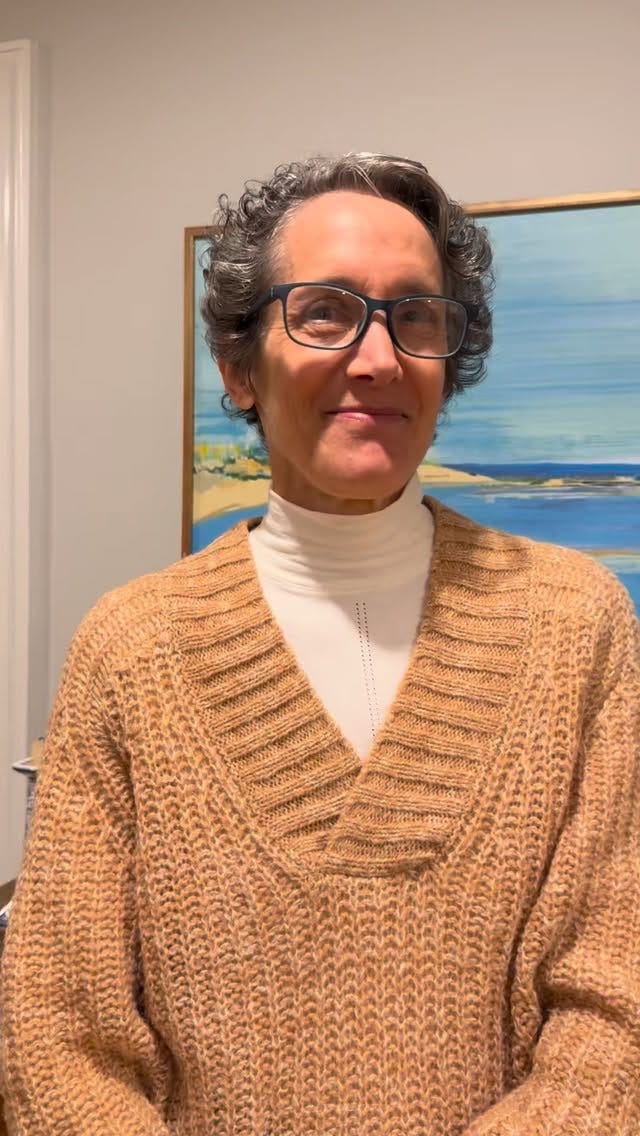
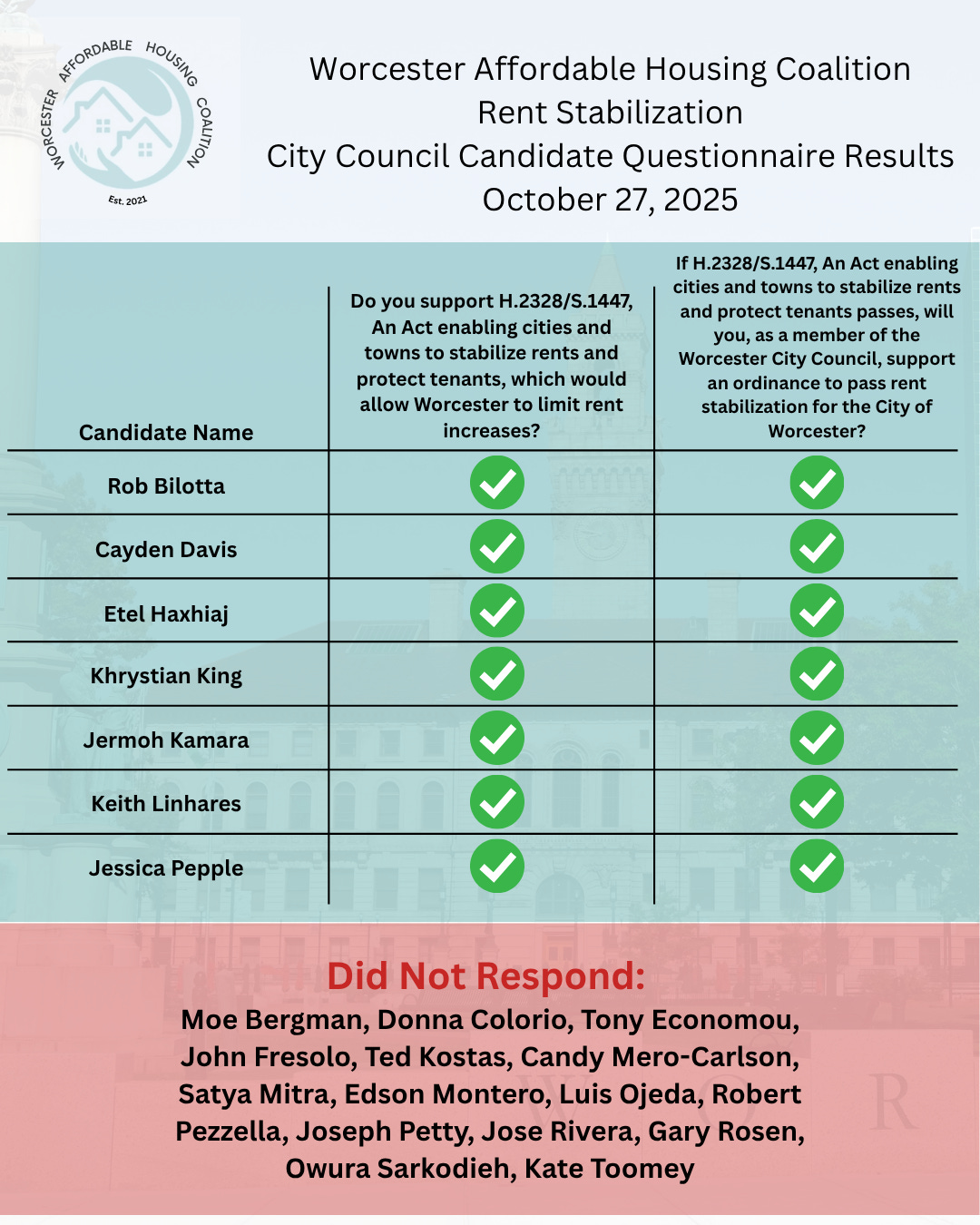
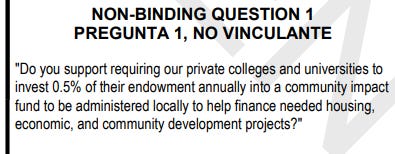
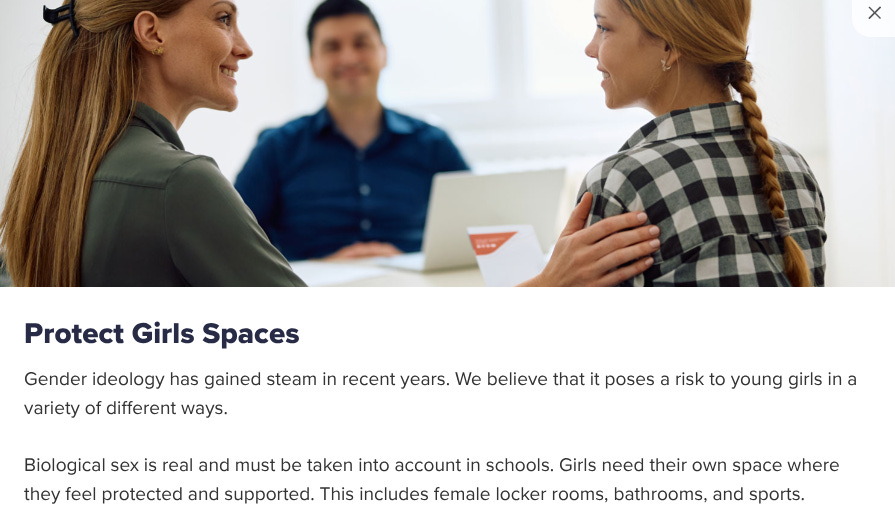
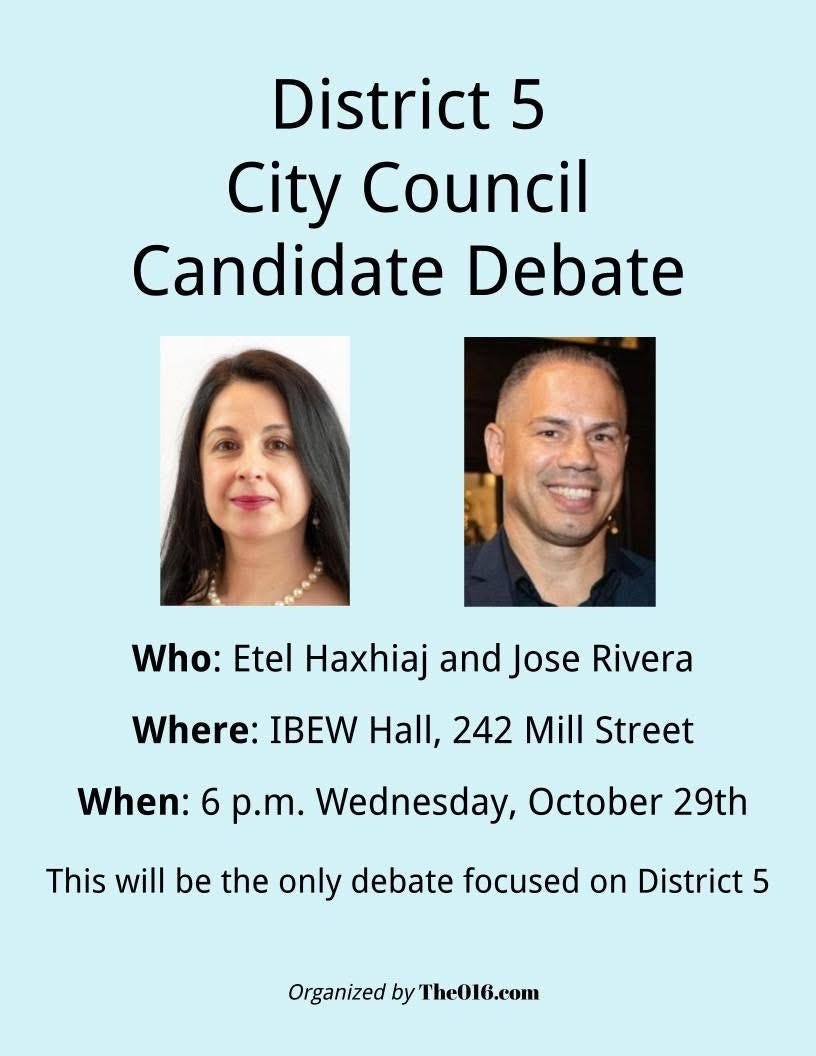
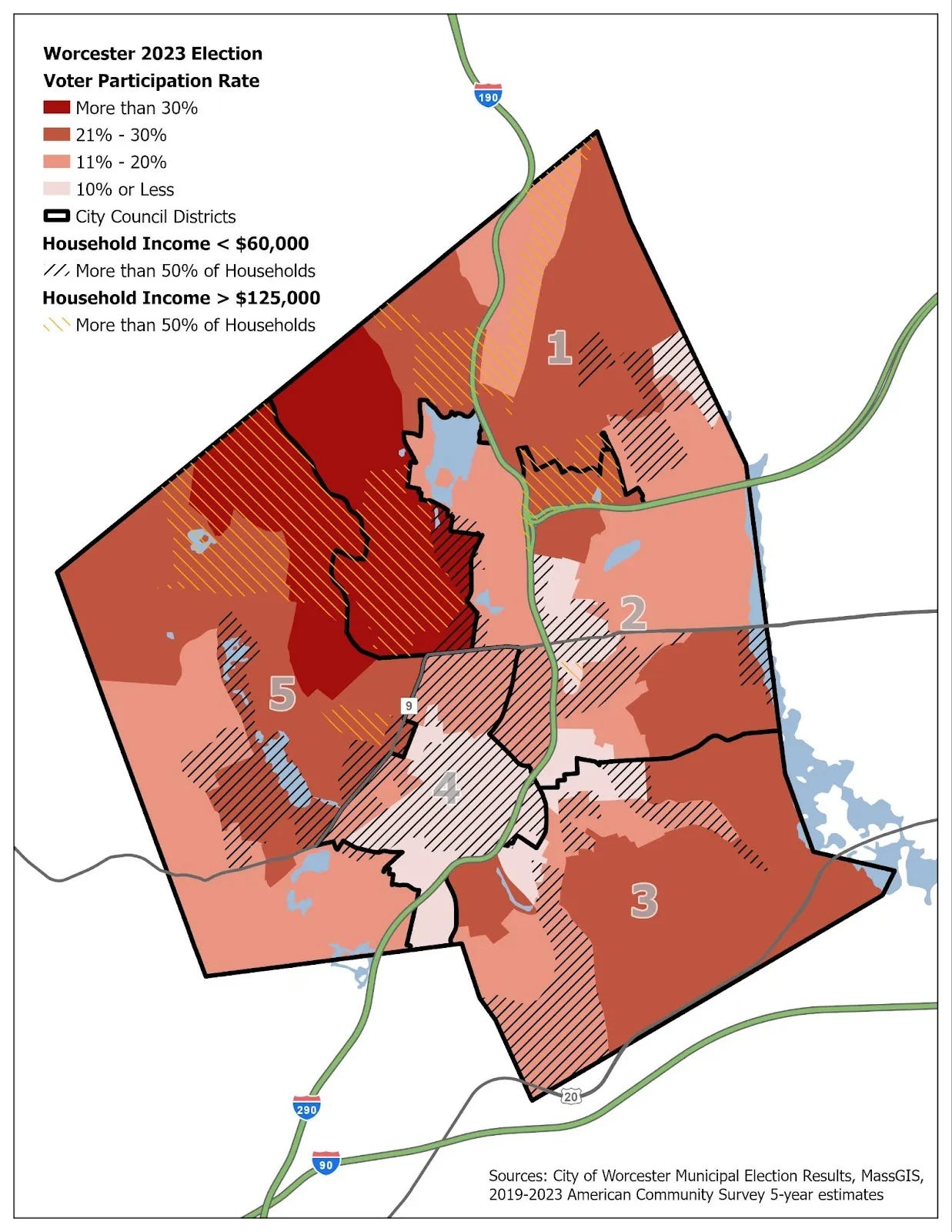
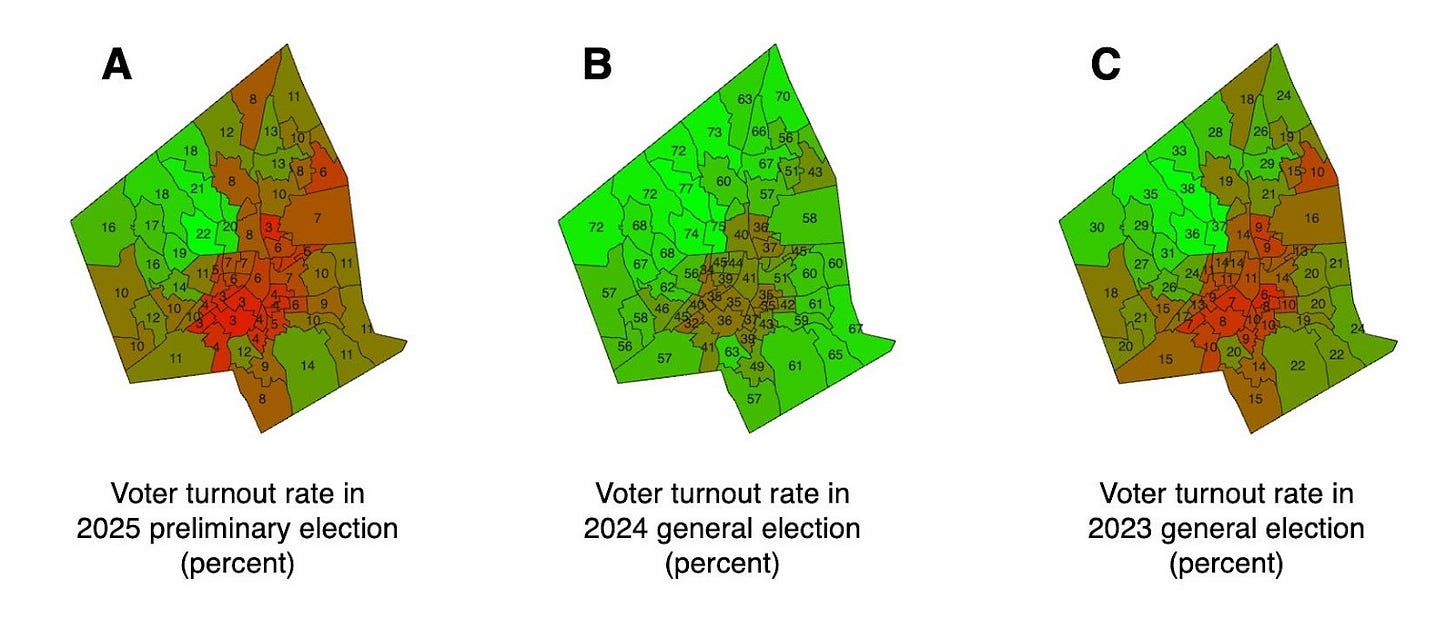



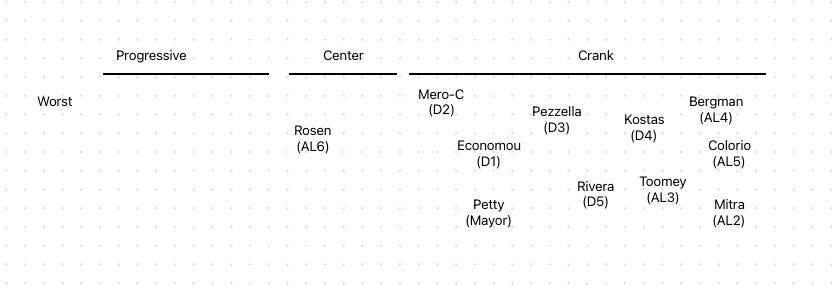



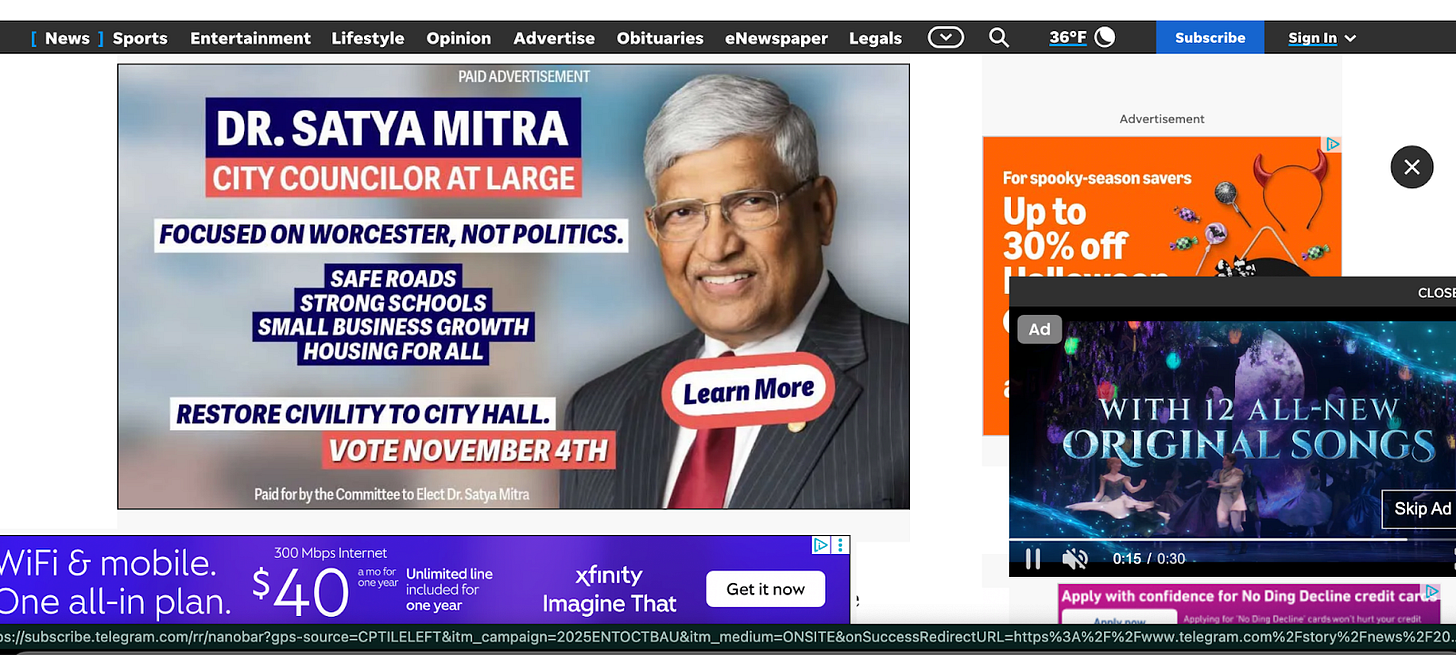
If for no other reason (and there are actually many) the election articles are worth every penny of my subscription. Thank you for putting these together!
“Kakistocracy” is the opposite of meritocracy, I believe.